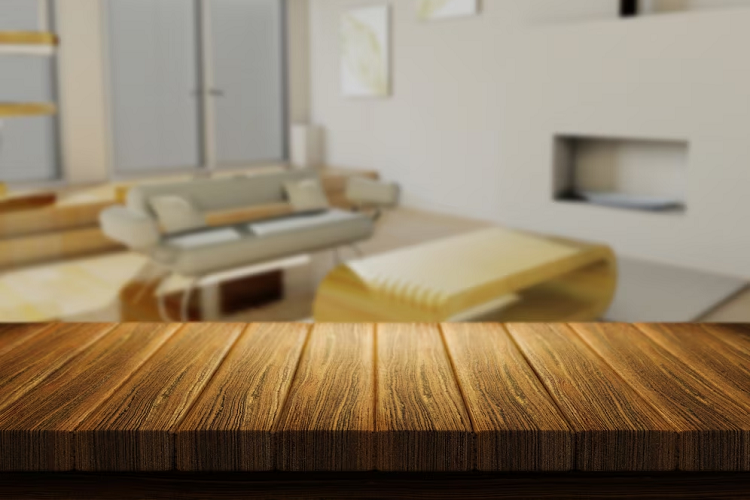In the ever-evolving world of interior design, one constant remains: the undying allure of wood worktops. Their timeless elegance, combined with unmatched durability, has positioned them as a premier choice for both contemporary and traditional kitchen designs.
Such worktops, particularly those rendered in sought-after woods like solid oak, iroko, maple, and walnut, are not merely functional additions but also artful masterpieces that add depth and character to any space.
As specialists affirm, the unique aesthetic and technical properties of these woods contribute to their sustained popularity. But what exactly are these attributes that make wood worktops an unceasing trend? This article delves deep into the world of wooden kitchen worktops, shedding light on their indomitable presence in modern homes and commercial spaces alike.
The Timeless Aesthetic of Wood Worktops
Wood, in its various forms, has been an integral component of design for centuries. The natural grains, knots, and patterns embedded within its fibres create a symphony of hues and textures, bringing a touch of nature right into our homes. In the context of kitchen designs, wood worktops lend warmth, making the space inviting and comfortable.
The tactile sensation of solid wood under one’s fingertips evokes a rustic charm, while simultaneously emanating sophistication. Unlike synthetic materials that can often appear monotonous or predictable, every wooden worktop is a unique masterpiece, curated by nature itself.
As the light changes throughout the day, these wood surfaces subtly transform, reflecting different shades and highlighting their intricate patterns. This dynamic interplay of light and wood lends a vibrant life to the kitchen space.
It’s no wonder that such worktops have been central to both historic and modern architectural marvels, being chosen for their inimitable character and organic beauty. Embracing wood is akin to embracing history, evolution, and the artistry of nature in one’s daily living space.
The Technical Superiority: Durability and Resistance
Beyond their visual appeal, wood worktops are revered for their superior technical attributes. Renowned for their robustness, these surfaces resist wear and tear, withstanding the test of time.
Hardwoods like oak, iroko, maple, and walnut are inherently resistant to dents and scratches, ensuring longevity. Furthermore, they possess innate antibacterial properties, a vital attribute for kitchen surfaces.
With proper maintenance, such as regular oiling, these worktops can retain their lustre and functionality for decades. Their resilience to heat, moisture, and pressure stands testament to their unparalleled technical prowess.
In addition, wood has a natural ability to absorb sound, making wooden worktops conducive to a quieter kitchen environment. This acoustic advantage adds to the overall comfort and ambience of the space.
Additionally, the reparability of wood ensures that minor damages can be seamlessly fixed, prolonging the life of the worktop and preserving its beauty. In an age where longevity and sustainability intertwine, the choice of wooden worktops aligns with a future-forward approach, celebrating materials that are not only beautiful but also enduring and efficient.
The Environmental Benefits: Sustainable Choices
In an era where sustainability is paramount, wood worktops present an ecologically sound choice. Wood is biodegradable and renewable, with many suppliers ensuring responsible sourcing from managed forests.
This commitment to the environment ensures a reduced carbon footprint. Moreover, the innate insulating properties of wood make it energy-efficient, helping regulate indoor temperatures.
Choosing wooden worktops is not just an aesthetic decision; it’s a nod to a sustainable future, embracing materials that harmonise with the environment rather than detract from it.
Furthermore, in contrast to many non-renewable materials which, when discarded, remain in landfills for generations, wood naturally decomposes, returning nutrients back to the Earth. This cyclical process emphasises the holistic relationship between the Earth and its resources.
Additionally, supporting industries that prioritise sustainable wood cultivation encourages reforestation and responsible forestry practices. As consumers make eco-conscious choices, they actively contribute to larger global initiatives geared towards conserving our planet. Thus, wood worktops not only represent aesthetic superiority but also reflect an individual’s commitment to a more sustainable and harmonious world.
The Versatility: Complementing Every Kitchen Design
Wood worktops are chameleons, seamlessly blending into any kitchen aesthetic. Be it a minimalist Scandinavian design or an opulent Victorian setting, wooden surfaces always find their place. Their adaptability is underscored by their ability to be stained, painted, or polished, allowing them to cater to a myriad of design preferences.
The rich hues of walnut, the vibrant tones of maple, the stately presence of oak, or the exotic allure of iroko – each wood has its unique personality, waiting to be moulded to one’s vision.
The Premium Woods: Spotlight on Oak, Iroko, Maple, and Walnut
Each wood species brings a distinctive character to the table. Oak worktops, revered for its durability, imparts a timeless grace. Iroko, often likened to teak, is cherished for its water-resistant qualities, making it apt for moisture-prone kitchen areas.
Maple, with its subtle grain patterns, offers a delicate elegance, whilst walnut, dark and opulent, exudes luxury. When it comes to crafting worktops, these premium woods are not just chosen for their aesthetic appeal, but for their technical virtues. They serve as a testament to the exquisite synergy between beauty and functionality.
In sum, wood worktops transcend fleeting design trends, anchoring themselves as perennial favourites in kitchen design. Their unmatched aesthetic combined with superior technical attributes makes them a discerning choice for both trade and retailers.
Whether it’s the rich history etched in their grains, the technical prowess they bring, or their commitment to sustainability, wood worktops are more than just surfaces; they are narratives of nature, craftsmanship, and innovation. They remain, unequivocally, timeless masterpieces in the realm of interior design.




